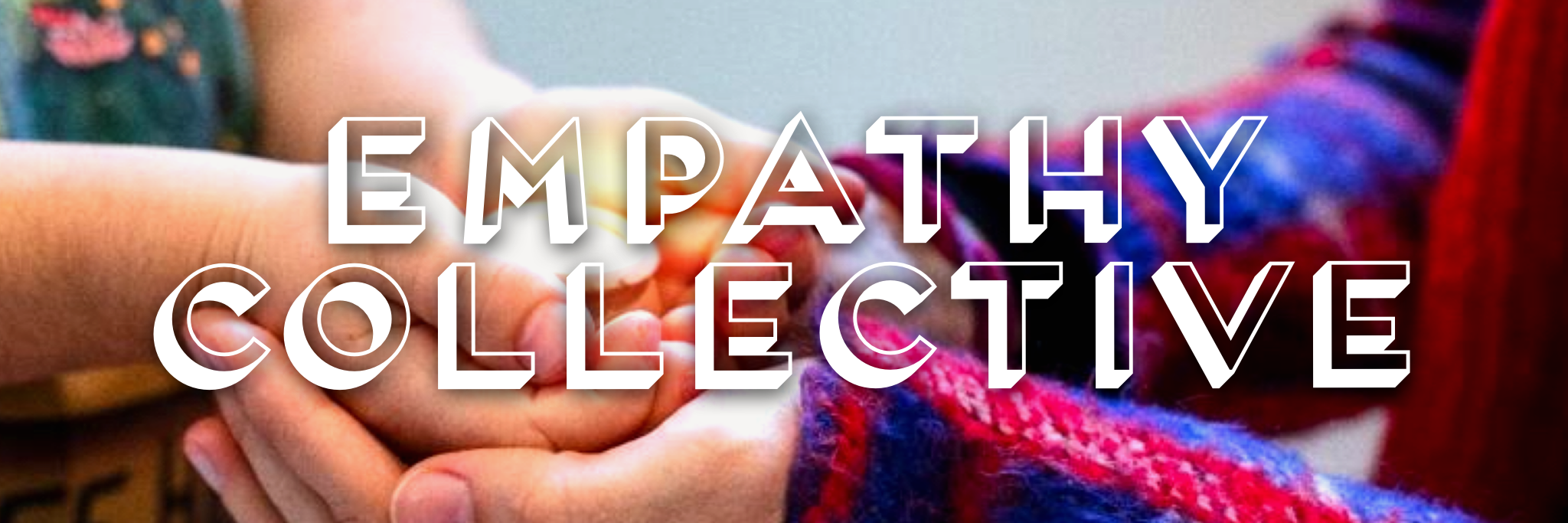Nurture curiosity
#11 | 22/3/23
“I want this to be really clear.
I want you to listen to this...
... In a world where there is so much destruction, war and hate... there is 99 times as much love, peace and friendship. I’m a witness to it.... what we see in the media is not a true reflection of society. Do not fear ‘the other’. Do not live in the stereotypes of ‘the other’. Lead with empathy. That is to understand their perspectives and their emotions as well as their contexts.”
Curiosity… the cat killer or a reminder that cat’s have 9 lives? ….proverbially speaking!
Here are 5 killers of your curiosity
Your judgement. Saying to yourself “I already know that” or limiting yourself by having a pre-formed opinion.
Your status. The need, or urge, to project a shared, or group, stance, let alone what your peers will think of you.
You believe it’s “them &/or us”. You can sometimes find yourself thinking “But they’re the enemy” and drawing a dividing line between yourself and others, turning people into “them”.
Being right. The right way or the wrong way. The right group or the wrong one. The right race, political party, gender…you name it…you’re right and they’re wrong. You may find a societal or moral reason, even a divine right, to justify your thinking.
Your weariness. The prospect of change is too tiresome. The prospect of engaging is too tiring. You want to cut to the chase. You find the will to change too challenging (or impossible) and hope is fading.
How do you change it? Here are 5 ways to nurture your curiosity:
Remind yourself to listen - it’s the reminding bit rather than the listening bit. There’s a person behind the voice. Listening can be hard, but reminding yourself to listen can be enough to help you to delve more deeply into the issue.
Step back. One helpful tip which many share. It helps to remove you from whatever you are caught up in and reclaim objectivity. Dr Claire Yorke (author, academic researcher, and former Yale Kissinger Postdoctoral Fellow) Dr Claire Yorke shared this tip recently at Empathy Week’s webinar about navigating conflict.
Humanise the people. Ask a question about the humanity of the people involved or the person in front of you (particularly when you find there’s a sudden snowballing of judgement in and around you). Simon Sinek (bestselling author) specifically suggests coming up with 21 alternative narratives
Take a moment to notice what you like. Start by noticing these things and if you want some inspiration to go further take a leaf out of Daryl Davis’ approach. Daryl Davis (a blues musician by day) was told as a child that people hate him for the colour of his skin. He questioned it saying : “How can you hate me when you don’t even know me”. For him it was the knowing part, his curiosity. He went even further and attended Ku Klux Klan rallies and befriended ‘the enemy’. Some klansfolk have even turned away from the klan and gave Daryl their KKK gowns. He still keeps them.
Reclaim Optimism. This is a biggie and not an easy fix. But it’s worth remembering that optimism doesn’t need to be blind nor idealistic (being an optimist can sometimes be followed by the put-down“oh isn’t that nice that you still believe that”!). It can, though, be revolutionary (even our scientist friends at UCL are saying it!). Optimism can be practical and radical. Being an optimist is something to reclaim and if you can’t do it by yourself find a community that share your hope.
Ahead of the Geographical Association Conference we’re trialling a shorter 50 minute version of The High Life at our offices in Tunbridge Wells this week (1130 - 1300, Thurs 23rd at our offices in Tunbridge Wells). Would you like to join us - if so please let us know. Details here.
Next week we run Desperate Journeys for students at North Kent College
We’ve been asked to present on the Refugee strand at this year’s Festival of Education and the role of ‘empathy’, ‘empathy-burnout’ and ‘empathy-resilience’.
What we are watching, listening, reading, attending…
We do like our immersive empathy experiments here at Empathy Action. This one from Global Action Plan caught are eye. It asks: “Do we live in a selfish world?”
Other reads, clips, podcasts, events, films from around the team
Its film awards season, but check out 68 climate leaders who are changing the film & tv industry
“Matar” a 23 minute film by Hassan Akkad is on the Waterbear network
Continuing to remember what’s going on in Myanmar (following a visit 3 years ago, the connection with the UK embassy, several organisations and working with an International School in Yangon) with this report from the UN Special Envoy to Myanmar, Noeleen Heyzer.
We loved the beneath video of ‘Behind the Scenes’ at Empathy Week. Ed Kirwain shares some of their hopes in this lovely video (watch to the end)
training your empathy muscle
About rewards and what they say and what they can teach us about fairness.
5 ways to help us…
Volunteer - we really need a bunch of regular helpers (eg a few hours or more(!) a week or for our immersive workshops from time to time).
Share the news! - please forward, share any social media posts. Ta!
Spread the word! - we’d value an intro… to any potential vols, customers or even clients! Word of mouth is the best!
Become an Empathy Angel - this year we are looking for 100 ‘Empathy Angels’ to help invest into us as we reboot empathy action to build a ‘Culture of Empathy’. Could you spare us the price of a cuppa (£2.50) a week… We can’t and don’t want to do this alone!
Host a coffee morning with a table of our handicrafts to sell and invite interested people to learn more and enjoy a cuppa
Thank you!





